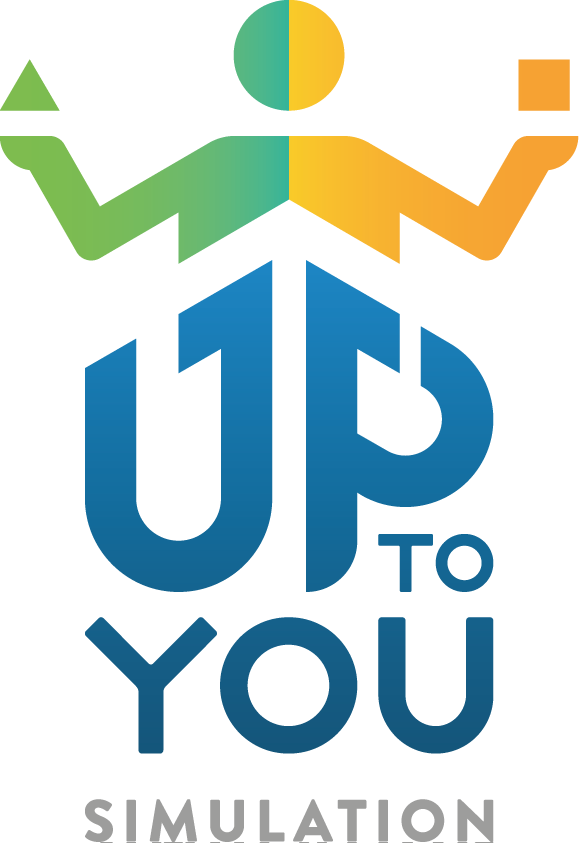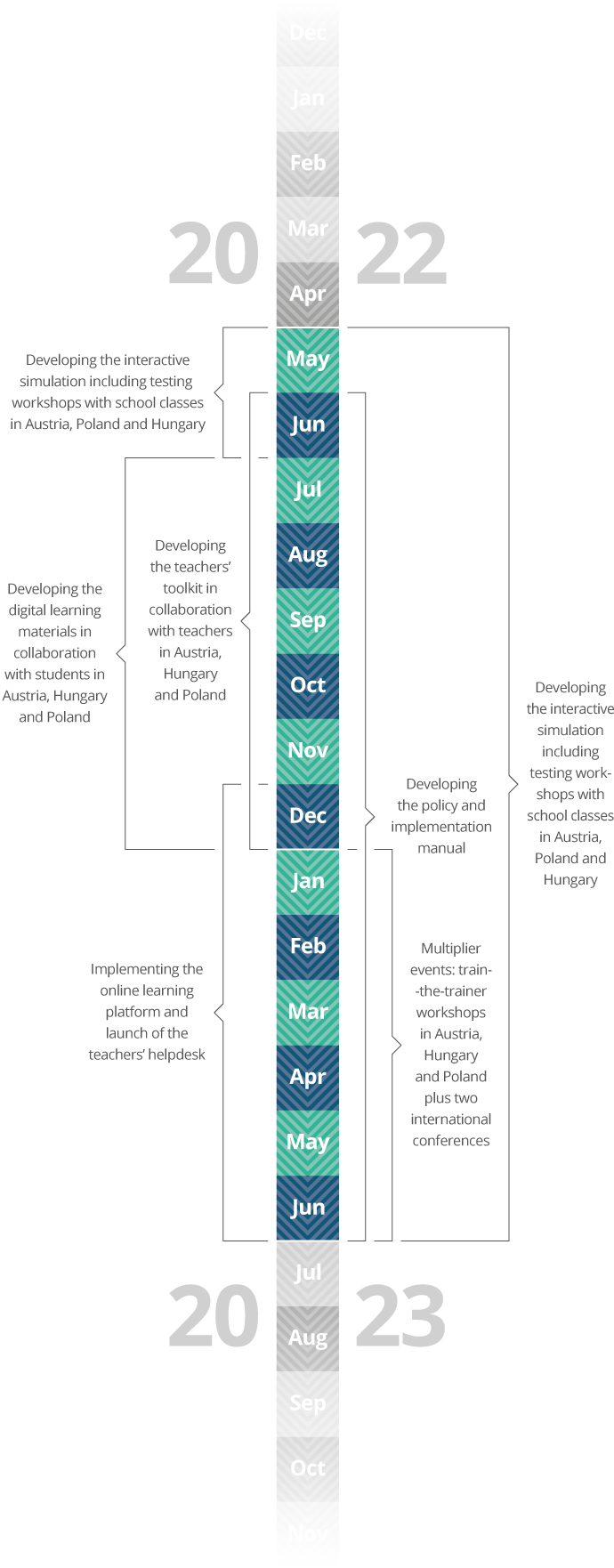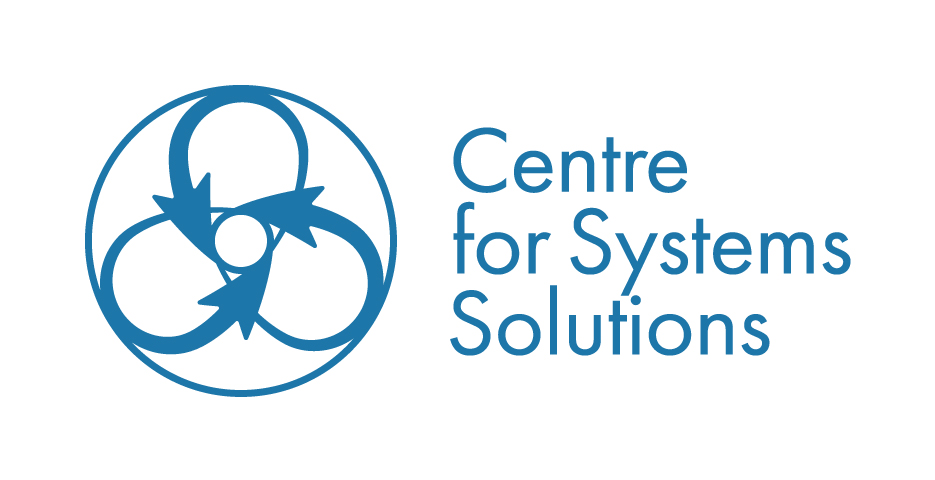Making Europe’s Future Sustainable!
A simulation-based learning program for schools

Project
In the project Making Europe’s Future Sustainable! A simulation-based learning program for schools, a comprehensive game-based learning and teaching program on sustainable development for cross-curricular education in secondary schools will be developed.
The learning program fosters citizens’ competencies among Europe`s youth, making them more aware of global challenges and encouraging them to become active changemakers. The learning program provides solutions that meet school education`s requests of high quality and innovative open access digital learning resources. In order to ensure that approach, all resources will be developed in cooperation with teachers and school students involving a diverse range of participants.
Timeline

Up to You! Simulation
Engaging and immersive, the game-based approach enables students to discover the interconnected nature of SDGs not by mundane studying of scientific facts but in an active “learn-by-doing” mode. The Up to You simulation supports students in grasping the complexity, uncertainty, and ambiguity connected to the sustainability transition. It is accompanied by the Moderator Handbook, which contains information required to prepare and organize a gameplay for a group of your choice.

Teachers’ toolkit
The toolkit offers practical training material for teachers to use the simulation and integrate issues of sustainability in blended teaching settings. It contains methodological support for moderation of participatory events and a set of activities to be run with students engaging them in the issue of sustainability, and developing a well-needed personal connection to it. It may be assesed directly from this link or studied step by step in the form of an e-course for teachers.

Digital learning materials
The modular learning materials consist of videos (live-action and animation), interactive elements (quizzes, scenarios), dossiers, infographics and background listening/reading. Through working with the materials, learners gain a better understanding of the SDGs, the principle of leaving no one behind and they strengthen their critical thinking and information literacy skills.

Online learning platform
The online learning platform will be the central location for all learning resources. It will facilitate the organisation of the teaching and learning processes and offer communication channels.

“What we recommend” manual
The policy and implementation manual provides a testbed for the interaction between the formal and non-formal education sector and aims to link open schooling and SDGs. The manual will be based on the simulation and accompanying school workshops in a new co-creation lab for real-world problems – the DOCK. In the DOCK-workshops university students, scientists and teacher training students can relate their own field of expertise and scientific research to everyday challenges of students and the public, and explore the potential of the simulation game. The manual also includes outcomes and recommendations of online stakeholder and policy maker meetings and an inclusive conference for practitioners at the intersection of non-formal and formal education including the voices of marginalized young people.
News
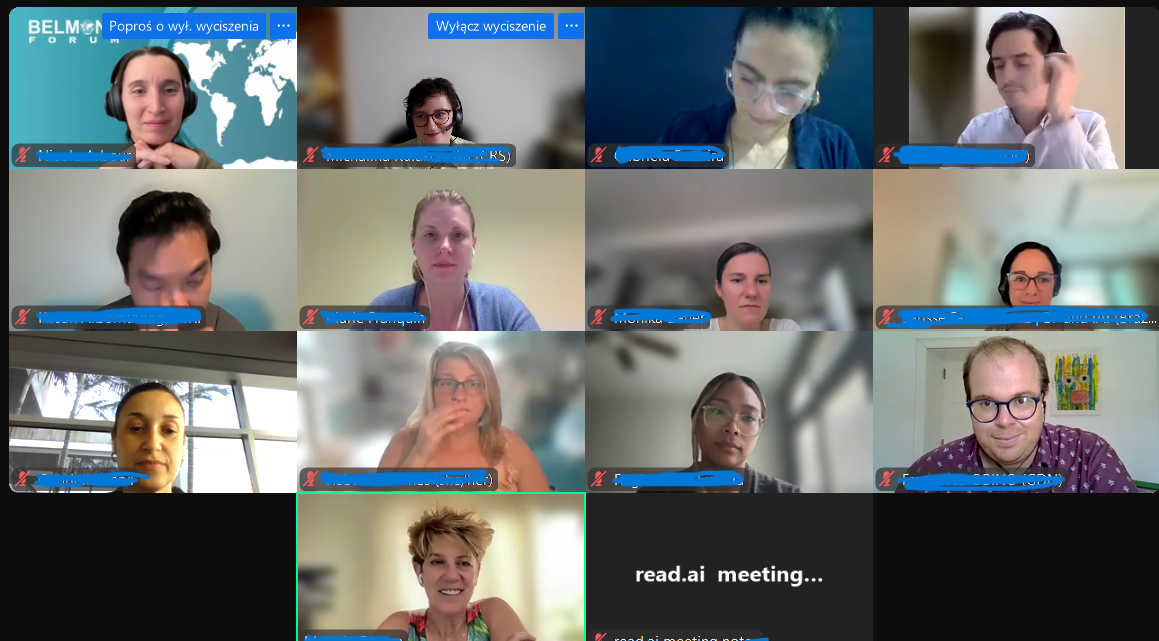
Yet more multipliers
This time we invited the participants to join two online meetings on June 11 and on June 27, 2024.
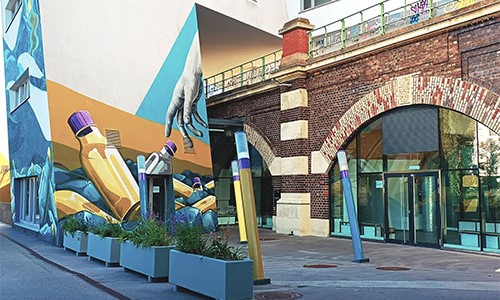
Future Skills and New Tools – The potential of gamification to achieve the SDGs
On June 24, 2024, the event Future Skills and New Tools was held in Vienna.
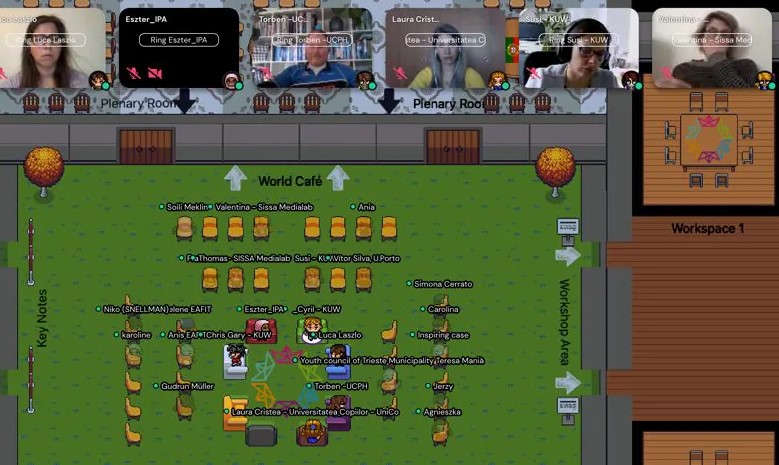
Online Meeting in the Gather Town Conference
On Monday, June 17, 2024, the Children’s University of Vienna held an online event on methods for discussing complex topics.
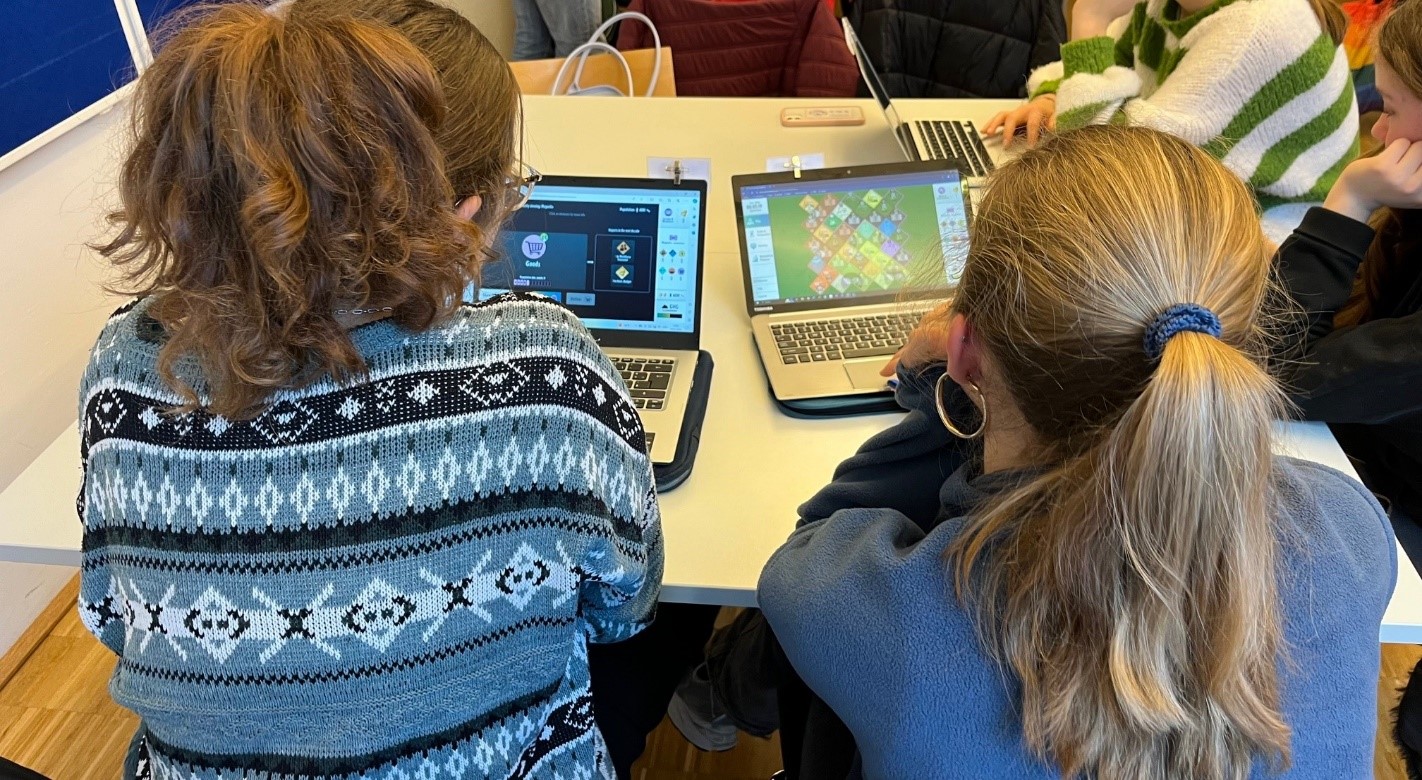
FutureSIM Meets University
ÖFSE had the opportunity to present the simulation Up to You! and train multipliers twice at the University of Vienna
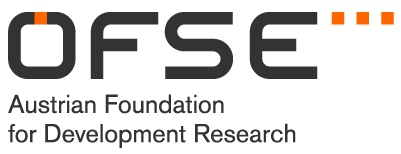
is a Vienna-based research, education and information centre on development policy. Research, information and citizen involvement on a sustainable, fair and inclusive transition for all is the core of ÖFSE’s work program. The organization is also home to Austria’s most extensive library on development politics, the C3-Library for International Development, encouraging wide-reaching public engagement and dialogue on sustainable development. Engaging in Global Citizenship Education ÖFSE cooperates with over 150 Austrian schools, working with them in participatory projects and activities on sustainable development and global engagement. In this project, the ÖFSE team accounts for the project coordination and the development of the digital learning materials.
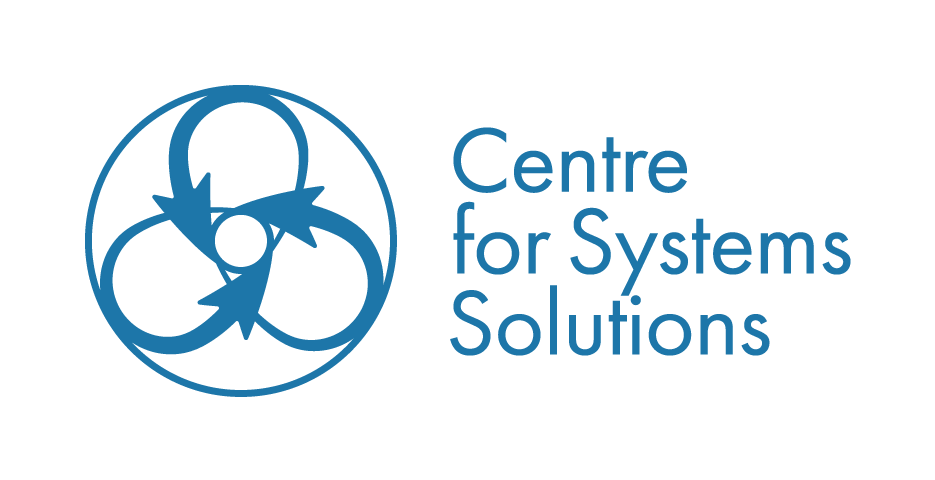
from Poland is a leading developer of serious games and simulations in the area of climate change and sustainability to support research, education and policy experimentation. They span multiple technologies, including mobile multiplayer games, board games and role-playing simulations to support active and participatory learning and teaching. In this project, the CRS team accounts for the development of “Up to You” simulation and the implementation of the learning platform.
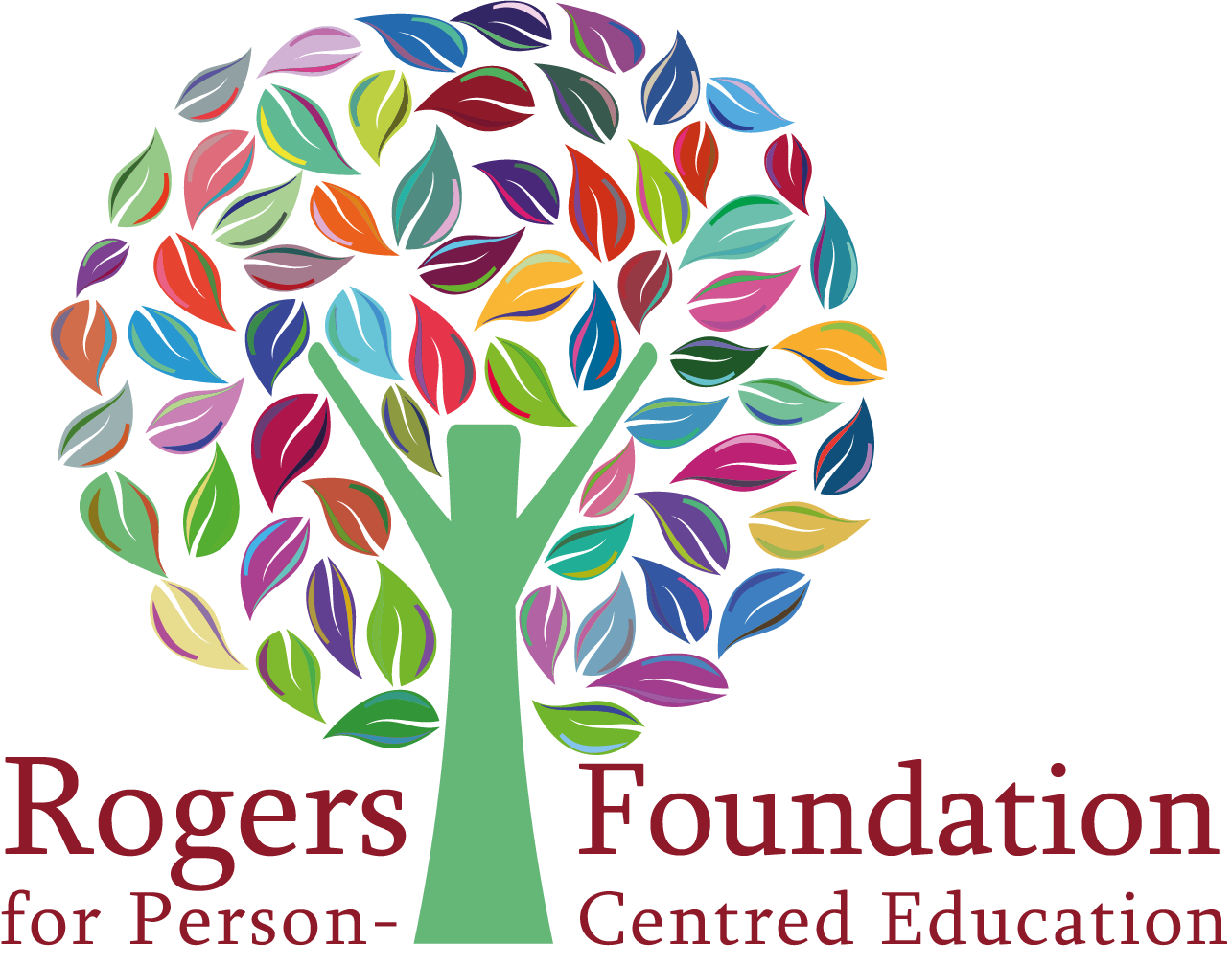
promotes a person-centred approach to learning and teaching in Hungary and abroad. In their daily work they are predominantly focused on developing innovative educational methods, integrating arts, music, literature, drama, animal-assisted therapy, and e-learning techniques with the aim of supporting children’s natural talents and enhancing their social competencies. In this project the organization accounts for the development of the teachers` toolkit.
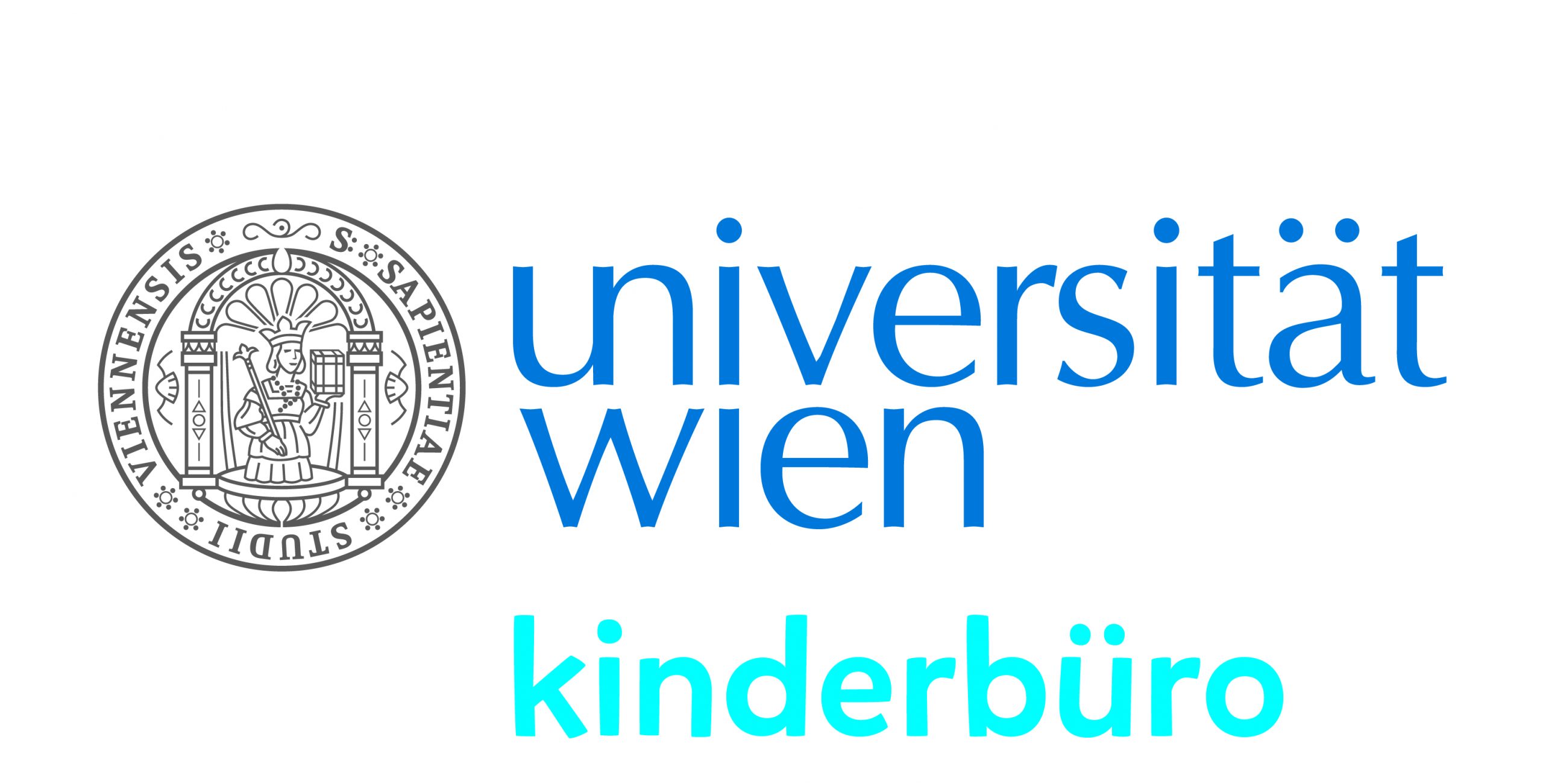
is a non-profit academic spin-off company owned by the University of Vienna. Since the foundation it operates on the interface between universities, science, arts and humanities – and society. The Children’s Office is continuously searching for innovative ways of engagement with children, young people and their families in the dialogue of science and society – with a special focus on social groups that are currently underrepresented in science, in (higher) education and in the societal dialogue in general.
Contact us

The European Commission support for the project does not constitute an endorsement of the contents which reflects the views only of the authors, and the Commission cannot be held responsible for any use which may be made of the information contained therein.
